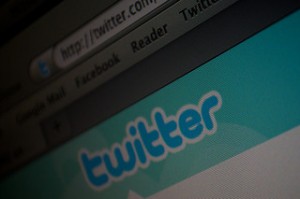The Twitter I.P.A.
Almost a year ago, we posted here about patent trolling – when individuals and firms use patents as a tool to extract settlements out of defendants who wish to avoid expensive patent litigation, even when the target thinks it can ultimately win.
Because they can be so valuable, patents are a big source of litigation, especially in the tech industry. Apple and Samsung have been at each other’s throats over smartphone patents, as have Apple and Motorola. Microsoft has been battling with Motorola over whether its Xbox violates Motorola’s patents, and Microsoft has also threatened smartphone maker HTC. Oracle sued Google, claiming Google’s Android cellphone operating system infringed on Oracle patents. Microsoft sued Barnes & Noble, claiming that its Nook e-reader violates Microsoft patents. Apple and Google are now eyeing each other warily over “slide to unlock” technology that Apple has patented and accuses Google of copying in its Android smartphone operating system. Google, as a defensive move, paid $12.5 billion to buy Motorola’s portfolio of nearly 25,000 patents.
All this litigation raises a question. Are the costs associated with patent litigation diverting too much attention from the real business of the tech industry — inventing awesome products?
Some of the real innovators in the tech industry – the engineers who actually dream up and build the stuff that ends up in new gadgets – are starting to wonder about that. A lot of engineers want to see their inventions have an impact on people’s lives, and they have mixed feelings when patents that they’ve assigned to their companies are used in litigation to prevent another firm from using a neat new technology or product feature.
As is usual in the tech industry, when there’s a problem, someone innovates. In this case, it’s Twitter. Twitter recently put into place what they call an Innovators’ Patent Agreement, or I.P.A. Under Twitter’s I.P.A., if you’re an engineer working for Twitter, and you patent an invention and assign your patent to Twitter, Twitter promises it won’t use that patent to sue anyone, except for defensive purposes. So, for example, unless a party sues Twitter first, Twitter won’t use the patent in a lawsuit. The I.P.A. also provides inventors with legal tools to ensure that their patent is not used offensively in a suit even if a totally different party owns it down the line.
In other words, the I.P.A. is sort of a patent version of the more well-known Creative Commons License that some use to keep otherwise-copyrightable goods accessible to all.
Why is Twitter doing this? Perhaps it hopes to appeal to engineers who value innovation over patents – those who, in other words, engage in innovation for its own sake rather than to get rich. Second, and just as importantly, Twitter may be engaged in a bit of what social scientists would call “norms entrepreneurship.” Twitter is a smallish company (less than $300 million in annual revenues). And it’s not yet a big patent player. If it can convince other companies in the tech industry to adopt something like its I.P.A., then it reduces its patent risk. In the midst of the tech industry’s current patent war, that seems unlikely, but it can’t hurt to try. Twitter’s strategy doesn’t cost much – a few lawyer hours to draft the I.P.A. and some time spent by Twitter’s top brass promoting the I.P.A. to the public and to its tech industry peers.
Of course, the I.P.A. may also be a nice piece of PR, one that makes Twitter seem like a good company that isn’t interested in grabbing every buck it can. And that might be a good move if it helps Twitter compete better in the one contest in Silicon Valley that is even fiercer than the current war over patents – the cut-throat competition to hire the best engineering talent.


Comments